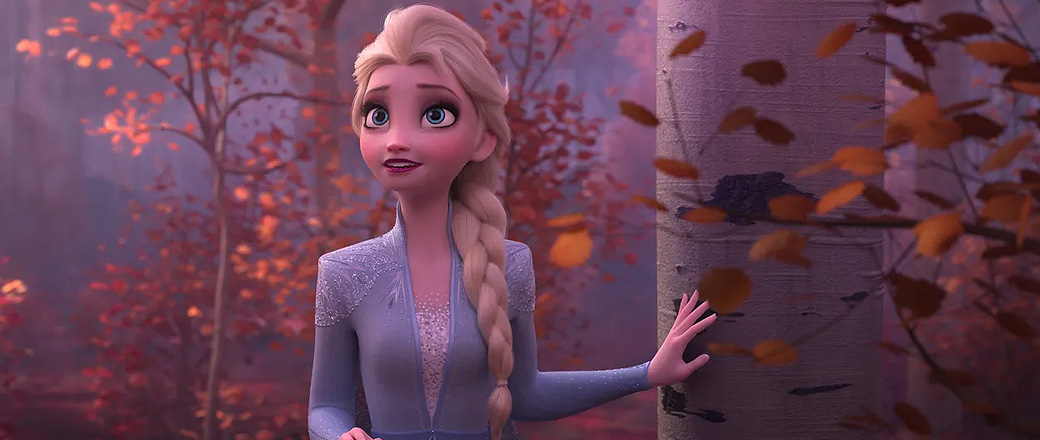Bizarre as it is, there has been a lot of speculation about the sexuality of Disney’s Frozen lead-character, Elsa. Since its release in 2013, countless articles have been penned, questioning if and when the Queen of Arendelle will ‘let go’ of traditional, cultural-norms, and be the first Disney ‘princess’ ever to be coupled with a lesbian lover.
As rumours of a second instalment began to stir online, activists started a social media campaign urging Disney to give Elsa a gay love interest. LGBTQ activists were quick to jump on board with the push to #GiveElsaAGirlfriend, and the film’s hit-song Let It Go was adopted by many as a ‘coming out anthem.’
Idina Menzel, the actress who voiced the character Elsa, told a Michigan LGBTQ magazine while she can’t promise that Elsa will find a lesbian lover in the second film, deep down she’s “really happy that it’s causing people to talk about it and have these kinds of conversations.”
The rumours were fuelled further after Disney released the Frozen 2 trailer, which introduced fans to a new mysterious female character named Honeymaren.
However, in August, Let It Go songwriter Kristen Anderson-Lopez quashed the rumours in an interview with IGN at D23 Expo 2019 saying it’s not the story they want to tell at this point.
“Like the first movie, Elsa is not just defined by a romantic interest,” she said. “There’s so many movies that define a woman by her romantic interest. That’s not a story that we wanted to tell at this point in time.”
But that doesn’t mean Disney hasn’t hinted at a future possible storyline either, according to Charlotte O’Sullivan of The Standard.
“[Disney] tease us,” she writes, “both with a seductive female voice that keeps calling to Elsa and with an enticing new character, Honeymaren (Rachel Matthews), who’s clearly single. Might Honeymaren become Elsa’s girlfriend in Frozen 3. That’s the carrot dangled by this fiendishly clever franchise.”
According to entertainment website We Got This Covered, Disney considered introducing a same-sex relationship in the second film, however, they decided against it due to concerns that some countries would ban the movie for promoting homosexuality.
That said, the website went on to claim, “While the studio isn’t ready to talk about Frozen 3 just yet, we’re told it’s definitely happening and again, the intention is for Elsa to have a girlfriend in the threequel, confirming her sexuality in the process.”
All of this raises questions about where the storyline is headed and whether or not we should blindly allow our youngsters to wholeheartedly join them for the ride.
Anyone with young daughters will know the powerful influence the film has had on kids. Elsa is one of the most popular Disney ‘princesses’ of all time. When it was released in 2013, the film brought in $1.3 billion at the box office. But that’s nothing compared to the $107.2 billion Disney has accumulated through merchandise sales since.
The unmatched popularity of the franchise is further evident by the fact that we all likely know grown adults who, at the sound of Let it Go, will either shudder in repulsion or else sing every word by heart.
There’s no doubt, our daughters love Elsa. Our daughters want to be Elsa! They feel an intimate bond with her, as though they know her personally. It’s not all that different to how we feel when we binge our favourite television series and find that we feel an emotional connection with the central characters.
So, what would happen if the beloved character, that millions of children trust, identify with, and feel an emotional connection to, were to come out as an advocate of LGBTQ ideology?
This would be the most effective method in desensitising an entire generation of young girls the world has ever seen. And as for the kids who have grown out of the hype by then, that character can still have influence through childhood nostalgia. After all, that’s why grown adults still visit Disneyland.
It may not be enough to say, we’ll wait and see where the journey ends before we decide to jump off. Our children are impressionable, and they’re encouraged to form emotional bonds with characters, not only for sales and marketing but in order to effectively communicate a message through those characters too.
Traditionally, the messages communicated were ones of heroism, the importance of family and friends, selflessness, love, and sacrifice. But as we’re witnessing more and more, the messages that are being communicated through ‘relatable’ loveable characters are unashamedly ideologically driven.
Parents need to decide early on, do we want to hand our children over to these seemingly innocent characters, which are now too often being employed to undermine a Christian worldview? It doesn’t matter if the ideology you oppose isn’t explicitly communicated in the first two films. If the train is destined to crash, then we ought to kill off any and all allurements back to the excitement of the carriage as quickly as possible.





















